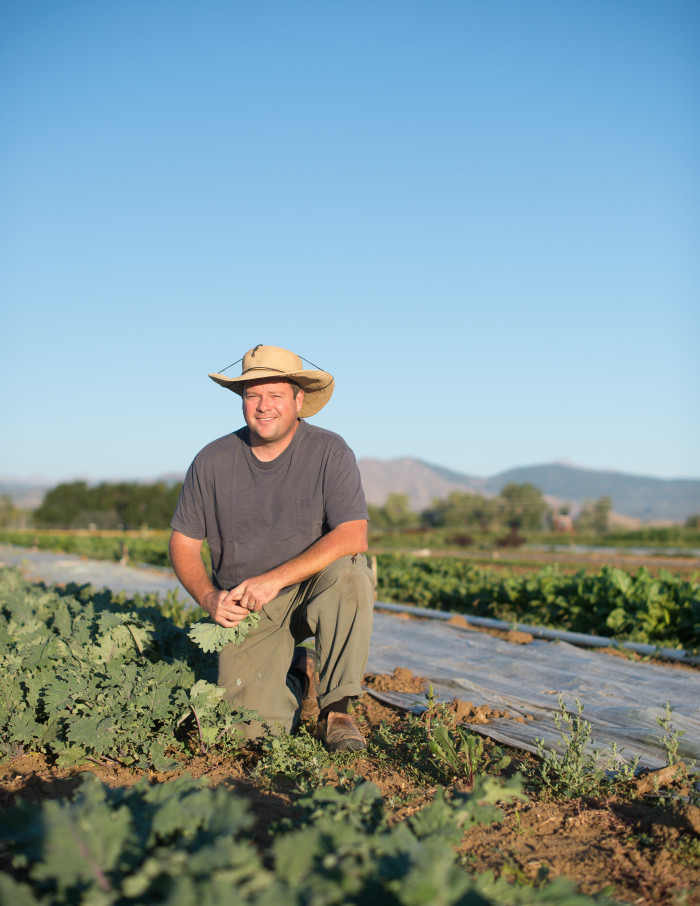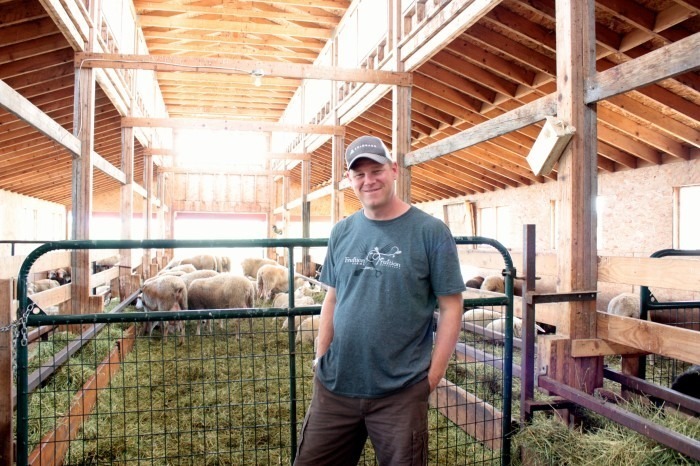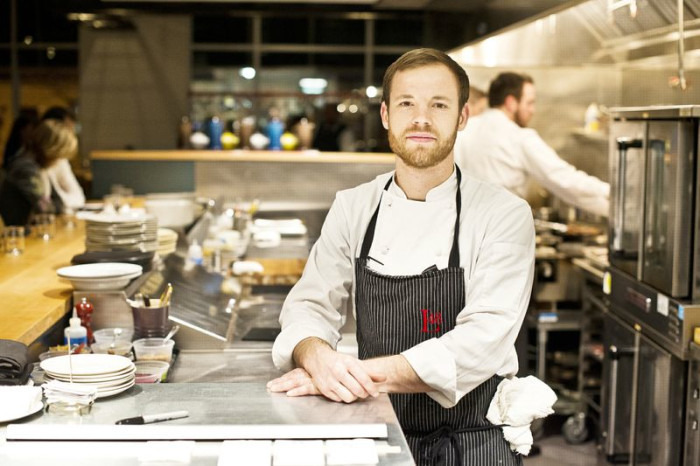These Colorado Chefs Experience Farm-To-Table From Both Sides
At a time when menus frequently feature seasonal specialties, the farm-to-table mantra may start to sound a little cliché. But for three Colorado chefs, sourcing food from farms involves more than picking up the phone. For them, making local produce a priority involves actually working the land.

Eric Skokan
The idea to lease a farm was hatched thanks to the garnishes chef Eric Skokan was buying for his Boulder restaurant, Black Cat. The delicate goods proved expensive after packaging and shipping, and Skokan began questioning the reasons behind this large carbon footprint. "As much as I love working with these garnishes, it just seemed in a global sense not the right thing to do," he says. So as a lover of gardening, he decided he would start a small plot to grow his own leafy herbs and micro peas that decorated his ever-changing plates. Fast-forward seven years, and the chef runs 130 acres of farmland between Boulder and Longmont. Soon, he says, he will add another 55 to the mix. With those farms he provides on average 70 percent of his fresh vegetables and protein throughout the year. About 30 acres go toward vegetables and lettuces, including the successful experimental planting of sesame seeds, garbanzo beans, corn for polenta and lately, a range of grains like buckwheat and millet. The hope, he says, is to produce enough flour to make his own bread. The other 100 acres go to raising animals like sheep, pigs, chickens, turkeys and cows. "It's an all-in operation," says Skokan, who is found on the farm about as often as he's in the kitchen. All his efforts make his restaurant one of the most literal farm-to-table joints in the whole country.

Alex Seidel
At least once a week you'll find Alex Seidel milking sheep, making cheese, feeding pigs and picking vegetables on Fruition Farm, the chef's six-year-old farm, named after his first Denver restaurant. "It's all about continuing education and learning more about the ingredients we use every day," says the award-winning chef. "You name it, we grow it." This includes peppers, squash, potatoes, sunchokes, berries, corn, rhubarb, garlic, beets, carrots and more. The facility even has a whole greenhouse dedicated to lettuce. On a sunny Monday in July, horticulturist Ilse Meyer was busy packing up two-gallon bags of arugula to take to Mercantile, Seidel's other restaurant in Union Station. On another part of the farm, the chef checked the temperature of the fresh sheep's milk being pasteurized to make ricotta, one of three types of handmade cheeses served at the restaurants. While tons of food is produced at the 10-acre farm, only a small percentage makes up what comes out of the kitchen. A lot of it does make its way to the plate, but a good portion goes to supply other nearby restaurants, as well. Seidel wishes it could be more, but he's content supplementing the menu with greens and meat from other local farms that have a lot more land than he does.

Alex Figura
While Alex Figura of Lower48 Kitchen in Denver doesn't have his own farm, he works closely with a couple of urban farms near his restaurant. "For me, you get the best connection with that person as well as how and why they are growing certain fruits and vegetables," says Figura, who previously worked at Dan Barber's renowned New York farm-to-table restaurant Blue Hill at Stone Barns. "You also get more familiar with what's grown in the area, especially if you aren't from here." These are some of the many reasons the chef has been getting a lot of his produce from Clear Creek Organics and Granata Farms, two venues in the city that mainly serve as a CSA, or community shared agriculture. "They get excited about a lot of things that they can't pass on to the CSA but that they can pass on to us, like different types of kale and radicchio," Figura says. "They put in the effort to have the public get to know the ingredient, which is why I like to work with them." Since about 80 percent of the vegetables come from the farm, Lower48 Kitchen's menu changes with the season and dinner is subject to whatever the farmers bring them. Figura still goes to the farm and does work there when he can, a skill he learned while cooking at Blue Hill. By being hands-on at the farm, you realize how much effort it took to get the vegetables in your hand, which makes you not want to waste a single part. "I encourage everyone to spend some time on a farm or go to he farmers' market and talk to the farmer," he says.


